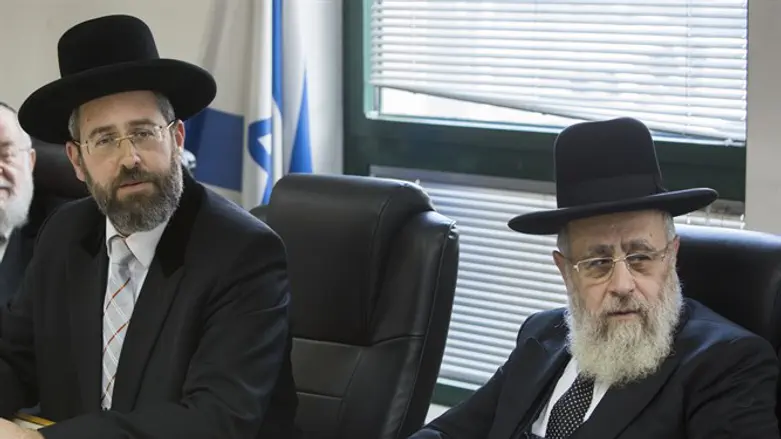
Two lawyers from the Caspi and Co. law firm sent a letter to the Supreme Court on Thursday detailing the Chief Rabbinate's response to the Kotel (Western Wall) plan.
According to reports on Monday, the 166-page document detailed the Chief Rabbinate's stance on the issue and was submitted in the name of Chief Rabbis Yizhak Yosef and David Lau.
The document centered around the fact that Israeli law does not allow the Supreme Court to decide on matters which involve religion or holy places.
"Mixed prayers, women reading from the Torah, and women giving the 'priestly blessing' - these are all things which fall under the jurisdiction of Jewish law and are at the heart of religious freedom," the document said. "The authority to make decisions on this topic does not belong to the Supreme Court
"The 'golden rule' when it comes to holy sites is that regardless of any orders, topics related to holy sites cannot be decided upon in court.
"Each religion in Israel has its own laws and customs regarding what exactly the religion's foundations and commandments are, regarding how to honor and enter holy sites. It is assumed that the honorable court would not intervene in issues concerning Christians or the Tomb of the Holy Sepulcher, and would not change the status quo in Jerusalem.
"The court would also allow the Muslim community to make its own religious decisions on whether to continue forbidding worshipers from entering Al Aqsa mosque with shoes, and whether to allow Muslim women to pray beside men instead of behind men in the mosque."
According to the attorneys, when it comes to "religious and moral decisions, the courts are not the proper tribunal for deciding whether or not to change Jewish law and desecrate a holy place, or to allow external ritualistic trappings which are not accepted by most religious authorities and cause conflict, division, and disturbances which in turn cause the site's desecration."
In addition, the Chief Rabbinate noted that the Supreme Court is not acting solely for objective reasons.
"This is a war of defiance against 'old-fashioned' religion and its institutions," they wrote. "It's about advancing fights for government recognition, or about advancing feminist interests at the expense of the Western Wall. This isn't just about religious freedom (referring to the Women of the Wall, ed.), it's an intentionally provocative protest held at a holy site."
"The Rabbinate does not want to set up a wall or to stop Reform and Conservative visitors from visiting the Western Wall and other holy sites. Each worshiper uses their own prayer book and prays as he or she pleases, and no one gets involved in their prayers. If the petitioners wish to pray at the Western Wall, they may do so. The Reform and Conservative are not obligated to pray in a mixed area by their beliefs, they simply want to. Their religious freedom is not harmed at all."
In June, the Supreme Court froze a plan which included moving the entrance to the mixed gender prayer section to the other sections' entrances and allowing representatives of the Reform and Conseervative movements to be on the Kotel Committee. However, an area for mixed prayers has existed for four years, and the government will expand it as planned.
Though the mixed gender section is sometimes full for events such as bar mitzvahs, it has few worshippers on Shabbat (Sabbath) every week, and during most of the year - even on days of religious significance such as the 9th of Av - the area sits completely empty.